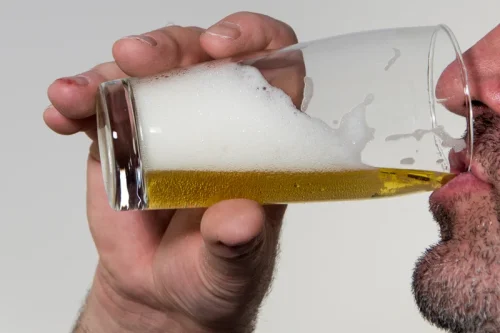
But someone in denial can choose a different person, place, or thing to target. Encourage them to seek help, whether through support groups, counseling, or recovery programs tailored for alcohol use disorder (AUD). Remind them that admitting the need for help is the first step towards recovery.
Family Dynamics

Personal experiences, support groups, interventions, family involvement, and signs of progress can all play a role in helping them reach that point. Asking for help or admitting to struggling with a problem is hard for many people, not just those who struggle with their use of alcohol. Admitting a problem means facing difficult truths and doing hard work to overcome the issue, which is challenging.
- One helpful strategy is to build a strong support system around your loved one.
- The evaluation consists of 11 yes or no questions that are intended to be used as an informational tool to assess the severity and probability of an AUD.
- The inclusion of family members is crucial, as their behavior can significantly influence an individual’s decision to seek help and maintain recovery.
- People with severe AUD may be ready to enter treatment as soon as you open the conversation.
Why denial is common for people with AUD
Substance use disorder is a primary, chronic, and progressive disease that sometimes can be fatal. No matter your background or expertise, your loved one will likely need outside help. If your loved one is truly dependent on alcohol, they are going to drink no matter what you do or say. If you know someone in denial about their https://ecosoberhouse.com/ alcohol disorder, here are some tips on how to talk to them. If you or someone you care about is struggling with addiction, please know that there’s help out there. Denial isn’t just about refusing to see a problem; it’s a complex psychological defense that lets people keep their addictive habits going by twisting reality.
The Psychology of Alcoholic Denial

Tables 3 and and44 focus on 176 AUD offspring who were primarily European American, 40% of whom were women, 29% had ever been married, and individuals who reported on average 15 years of education. Sixty-two percent met interval criteria for alcohol dependence, they reported on average 11 maximum drinks per occasion and endorsed an average of four AUD criteria. One in five smoked cigarettes in the prior 5 years, 80% used cannabis, 19% had a cannabis use disorder, and 37% had used other illicit drugs, including 3% who developed a SUD on those substances. Group 1 deniers were also less likely to endorse every specific AUD criterion except for D3 (drinking more or longer than intended). AUD offspring in Group 1 on average reported fewer drinks required for effects across the timeframes (SRE-T), were less involved with other drugs and had lower scores on sensation seeking. After all, they have managed to maintain the appearance of success despite their addiction.
- Not everyone who has alcohol use disorder hides or denies they misuse alcohol.
- AUDs may affect not only the person with the drinking problem themselves, but also their family, their loved ones, and others around them.
- As you approach an alcoholic in denial, remember that encouraging the person to seek help is only the beginning of a long journey toward recovery.
- Nearly 20% of alcoholics are highly functional and well-educated with good incomes.
For some people, outpatient programs with therapy treatment sessions are a great way to start the recovery journey. For others, an inpatient program that can help with withdrawal and mental health concerns might be a good choice. People with AUD are likely to employ denial because admitting that alcohol alcoholism and denial has become a serious problem can be incredibly difficult. Many people with AUD drink more than they intend to but want to believe they are still in control of their drinking. Not everyone with AUD demonstrates denial, but it’s a common occurrence that can prevent people from seeking treatment.
Communicate your boundaries

Discuss Treatment Benefits
- This could be in a one-on-one conversation or an intervention with others who are concerned about the person.
- Treatment and recovery for an alcoholic in denial begins with selecting the appropriate course of action.
